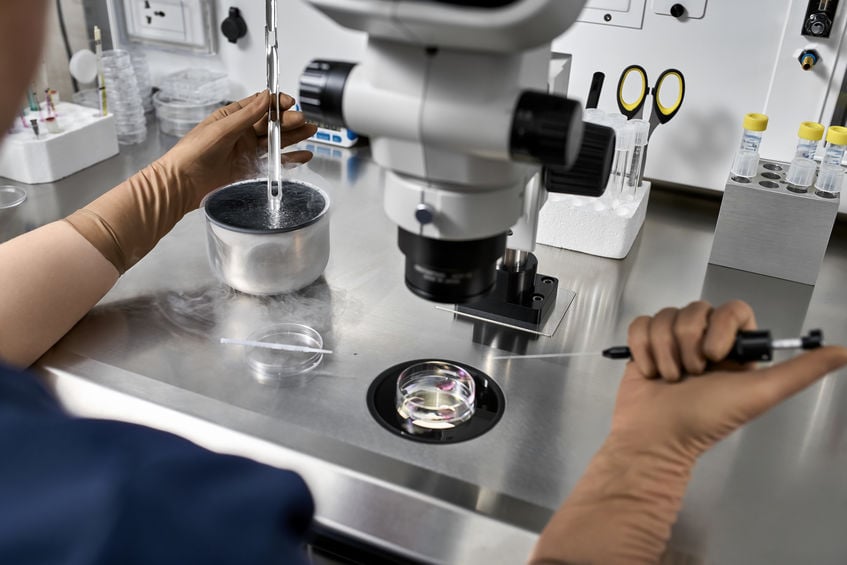A Surprising Type Of Infertility
Starting or growing a family can be a fulfilling life goal that some achieve relatively quickly. For 1 in 8 American couples, however, getting pregnant can feel impossible. Infertility happens when a couple cannot get pregnant after 1 year of trying. Most cases are male-related factors, female-related factors, or both. If there is no clear cause, a doctor declares the condition as ‘unexplained’. Unexplained infertility brings even more confusion, stress, and uncertainty for couples.

Why isn’t there an explanation?
An unexplained infertility diagnosis is not given lightly. The conclusion comes when all obvious reasons are ruled out. Couples struggling to get pregnant often undergo a full evaluation by a fertility specialist. The sperm is checked for quality and quantity. The woman’s reproductive health and ovarian reserve are also checked, along with the relevant hormone tests. Even tests like a hysterosalpingogram (HSG) will find scars or growths in the uterus and fallopian tubes. If all markers are healthy, the conclusion is unexplained infertility. About 10% of couples trying to conceive will have unexplained infertility.
Can IVF help with family planning?
The diagnosis can be distressing. Yet, many of these couples are still eager to start or grow a family. There is still a possibility that couples can get pregnant without treatment, though the chances are slim. However, with assisted reproductive technology (ART), there is light at the end of the tunnel. In vitro fertilization (IVF) is the gold standard of ART. IVF is the process of fertilizing eggs and sperm outside of the body. A fertility clinic creates embryos with egg and sperm samples and implants one into the woman’s uterus. IVF circumvents any possible complications with natural conception.
What should you expect during IVF?
IVF is a process that consists of many moving parts. The woman will take injectable hormone medication for up to 14 days to develop mature eggs. The fertility clinic then extracts the mature eggs. An embryologist takes the eggs and a sperm sample to create an embryo. Additional testing can happen at this stage. The embryo matures over several days before implantation. The clinic freezes extra embryos for future cycles.
Explaining infertility
Many patients and fertility clinics are surprised to find an underlying reason for infertility during the process. For example, an embryologist can detect minor anomalies impacting egg quality. The team may find subtle changes in sperm quality as well. Additional steps like intracytoplasmic sperm injection (ICSI) can help for male-factor issues. Sometimes, implantation issues can arise within IVF testing. At this point, a surrogate improves the chances of success.
Is IVF the answer?
Unexplained infertility can feel like an impossible challenge. Yes, the diagnosis can be difficult, but IVF can help with family planning. On average, studies show the success rate can be as high as 50%. Some patients will need multiple cycles of IVF, but the success rate can increase over time. IVF can also uncover conditions that can help with a future pregnancy. Overall, IVF continues to be the most effective solution for unexplained infertility.





